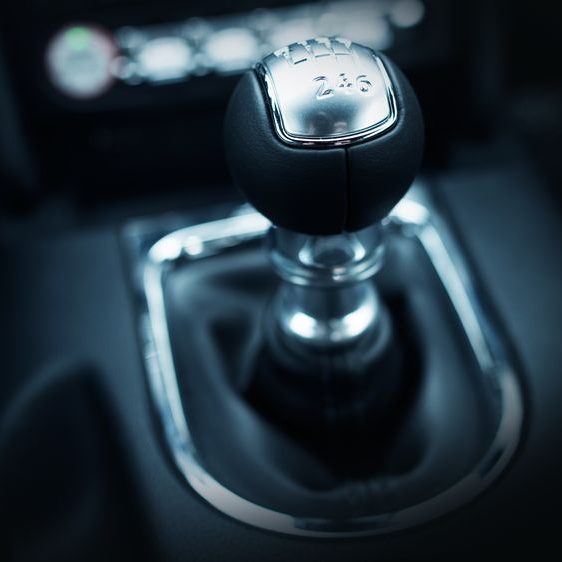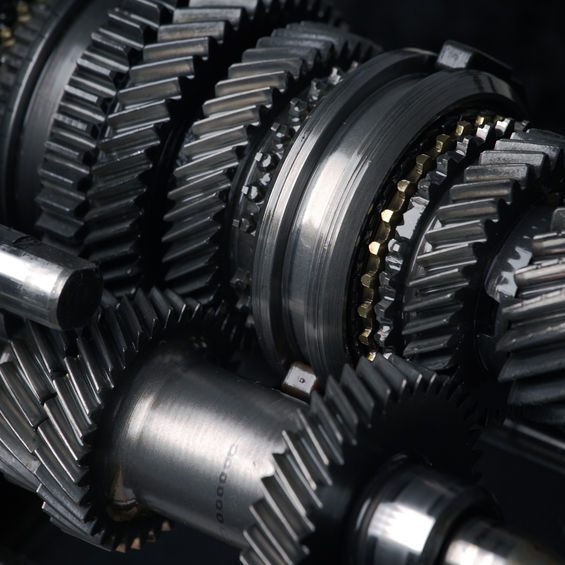
Transmission Repair Service
Four words you never want to hear out of your mechanic’s mouth is “transmission repair is needed”. On your way to work, what could be worse than car trouble? Or worse, you’re trying to leave work to go home and have car trouble?!
Like a dead battery, a flat tire, or the transmission going out. Yeah, all three of those instances are not something you want to deal with, but that third one, the transmission going out, would have to be the worst one. In our article today, we are going to answer questions about vehicle transmissions, the dilemma whether you need transmission repair or replaced, and more.
What Happens to a Car When the Transmission Goes Out?
Your vehicle is powered by the motor and propelled by the transmission. The transmission controls how the engine’s power is transferred to the drivetrain, allowing the driver to switch gears and control the speed they are traveling. When there is a problem with the transmission and you don’t know what to expect, you and any passenger in your vehicle could be at risk.
When a transmission quits, it affects the handling of the vehicle. There will be slippage, which is when the engine is revving but the vehicle isn’t moving. You may experience vibrations as the vehicle moves, or the vehicle feels as if it is slipping. Some vehicles will experience a difference in the shift patterns and the gear shift won’t work when the transmission quits.
Bad or low transmission fluid can sometimes be the cause of a transmission going out because it experienced a complete gear breakdown. Normally, an automatic vehicle transmission will shift quietly and smoothly. If your vehicle is making noises as it shifts or you feel a vibration as it shifts, this is an indication that your vehicle’s transmission is experiencing problems. At this point, you need to have a certified mechanic check it out and possibly if any need of transmission repair fluid will be the fix.
What Are Signs of a Bad Transmission?
When driving a vehicle with an automatic transmission, there are five basic signs that you shouldn’t ignore because they each indicate the transmission is about to quit:
- Slipping – Transmission slipping will feel as though it changes from the gear that you’re in, to another without your changing gears. During this change, you may hear a high pitch noise or whining. The vehicle will seem to have lost power and won’t accelerate properly.
- Shifts Rough – Your vehicle may seem to refuse to shift gears or doesn’t shift gears smoothly. Sometimes there is a clunk when this is happening and the vehicle strains to reach appropriate speed.
- Delays To Engage – Your vehicle is low to engage in gear and move or pauses when you shift from park to drive but the engine revs up as you attempt to accelerate, the vehicle still doesn’t move.
- Leaking Transmission Fluid – The transmission in your vehicle is a sealed unit, meaning it cannot leak any fluid. If there is transmission fluid under your car, a bright red or dark brown fluid, you should contact your mechanic immediately. If the transmission is simply low on fluid, add more, careful to stay within the factor specifications so that you do not overfill the transmission, cause a seal to bust.
- Warning Lights – All vehicles are equipped with warning lights, one of which is “check engine”. This may not indicate a problem with your vehicle’s transmission problem, but it does indicate you should have your vehicle checked by a certified mechanic if you’re having any of the symptoms we’ve just listed. In today’s vehicles, the warning light is telling you that the computer has picked up an error code somewhere within your vehicle. The mechanic can check for any specific transmission codes that indicate your vehicle may need transmission repair, or other codes that the computer has picked up.
Can You Drive a Car With a Bad Transmission?
If your vehicle’s transmission isn’t working properly and you keep driving it, you should realize this is risky and your transmission is operating on borrowed time. Getting your transmission repaired sooner than later is important for your safety and the longevity of the vehicle.
Understandably, there are times that transmission repair is not affordable for most people, but the results of driving a vehicle with a bad transmission should be avoided if possible, because of the extended damage it can cause. While you may still be able to drive your vehicle, each time it is driving, it is shaving metal off into the guts of the transmission and into the coolant. You can quickly go from needing nothing more than having transmission fluid added to a much more expensive and intensive repair need, or worse, a new transmission.
Is It Worth Fixing a Transmission?
For as much convenience they bring to our lives, vehicles can cause us a lot of grief too, like the transmission malfunctioning, or completely going out. As we just discussed in the last question, your transmission is on borrowed time if you remain driving it once it begins having problems. So, the sooner you can get your vehicle checked by a certified mechanic and the problems addressed, such as having transmission repair done, the better it is for you and your vehicle.
If your vehicle has begun having problems with the transmission, it doesn’t necessarily mean that you need to start shopping for a new (or newer) vehicle. If you find a mechanic shop that will offer you transmission repair with lifetime warranty, there are substantial benefits to having it repaired, such as the following:
- Smaller Expenditure –To have a transmission rebuilt or repaired, it does cost a significant amount. The cost will factor in the age and type of vehicle, and pricing can vary from city-to-city, state-to-state. However, when you compare the cost of rebuilding or repairing a transmission to what a brand-new unit will cost or buying a new vehicle, it may be the most economical choice. The cost of a new transmission can run thousands of dollars, and a down payment for a new vehicle is even more. The cost of having the existing transmission rebuilt will typically be much less of either of those options.
- Minimal Financial Strain –While it isn’t going to be cheap to rebuild the transmission, once it is done, you will have more money left over than if you were to go with a brand-new transmission. And when you consider after you have made that down payment on a new(er) vehicle, you will then have that monthly payment obligation as well as possible increase on your vehicle insurance – all of which can put you in a financial strain if you aren’t prepared. The less debt the better in the long run and in the short run, having more disposable income can be enjoyed and/or saved.
- Extended Life Of Your Vehicle –If you aren’t ready to take on a monthly vehicle payment, by having the transmission rebuilt, you are giving your current vehicle an extended life, and that gives you a lot of financial benefits! Not only are you avoiding vehicle payments, but you’re not acquiring debt with interest on top of it. And when you trade in a vehicle with transmission problems, you aren’t going to get a lot of trade-in value by any dealership.

Is It Better to Rebuild or Replace a Transmission?
When it comes to choosing transmission rebuild or transmission repair, both will come with a price. You should shop around for quotes and ask about the guarantee and warranty offered either way.
A transmission repair will be the mechanic diagnosing the problem with your vehicle’s current transmission and then repairing it. A transmission replacement is a mechanic removing the old transmission and installing either a re-built unit or a new one.
So, which is the best option? In some cases, a transmission repair will have more problems later, making the transmission replacement the best choice. Here, we have some facts that will help you determine if a transmission repair or transmission replacement is the best option.
- Multiple problems: If your vehicle’s current transmission has been having multiple problems, and you’ve had to take your vehicle to the mechanic multiple times, it can be seen as an indication of more problems. Determine how much this has cost you to date and compare to the cost of replacing it.
- On the threshold of failing: If your vehicle’s transmission is experiencing any of the symptoms we’ve discussed so far, this could indicate it is on the threshold of totally failing, then replacing it is the better option of transmission repair.
- Diagnosing problem is not possible: Sometimes a transmission will develop issues that aren’t immediately found, and you’re having to leave it with the mechanic longer than desired. Some shops will begin charging storage fees after a certain time frame, adding to the expense of the mechanic’s evaluation. When this is the case, the best choice is to have the transmission replaced.
- Extensive, high repair costs: If a transmission is repairable, it doesn’t necessarily mean it will be expensive. The size of the problem is what will determine the cost to repair it but based on the age and model of your vehicle, a transmission replacement may be the best option versus transmission repair.
A transmission repair or transmission replacement is a decision that you, the vehicle’s owner needs to decide based on your own situation. Having a one-time cost of repair or replacing may be easier than taking on a new vehicle payment. And for some people, their car may have a sentimental value that makes any repair or replacement worth the expense. For your transmission repair, call 310 672-8131 today!
